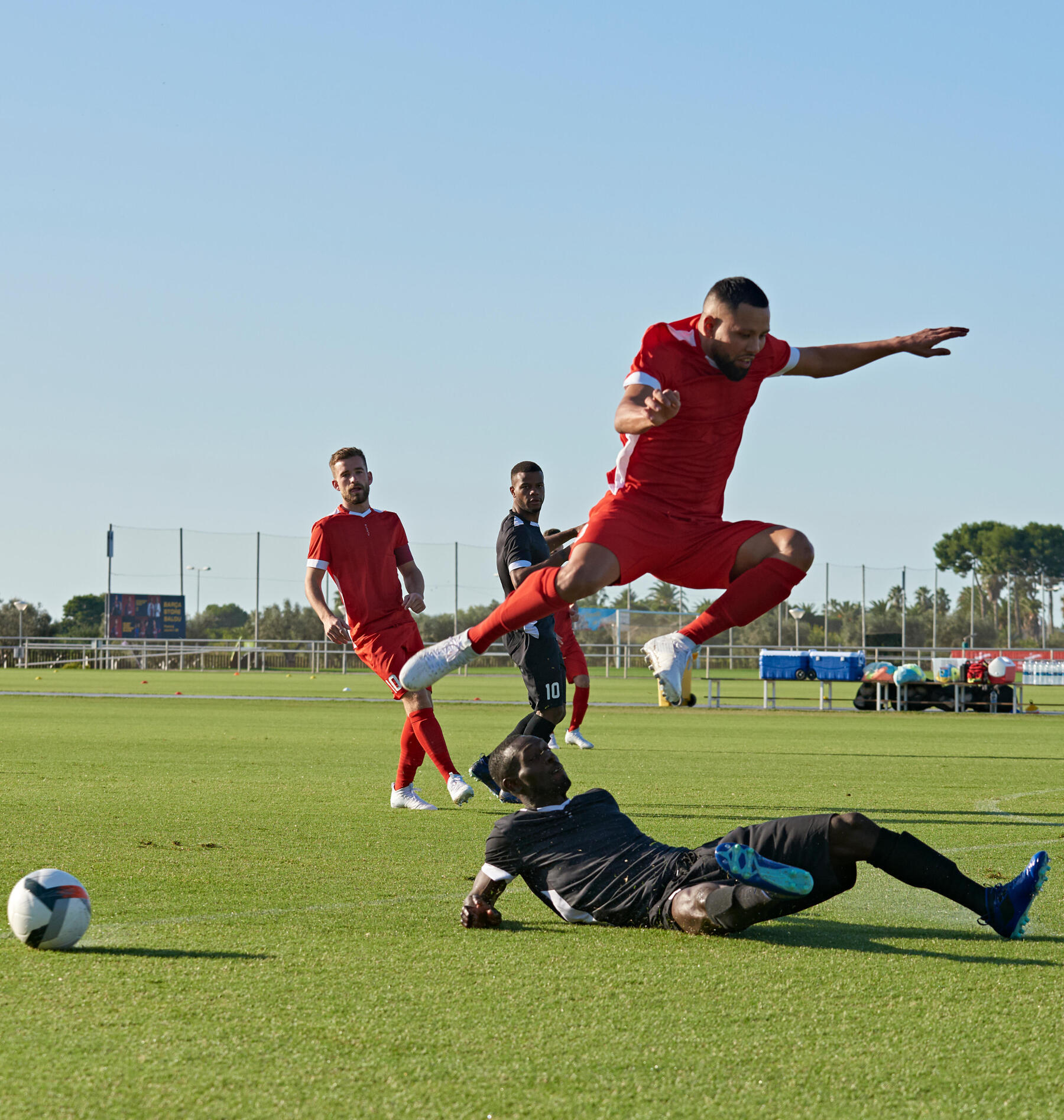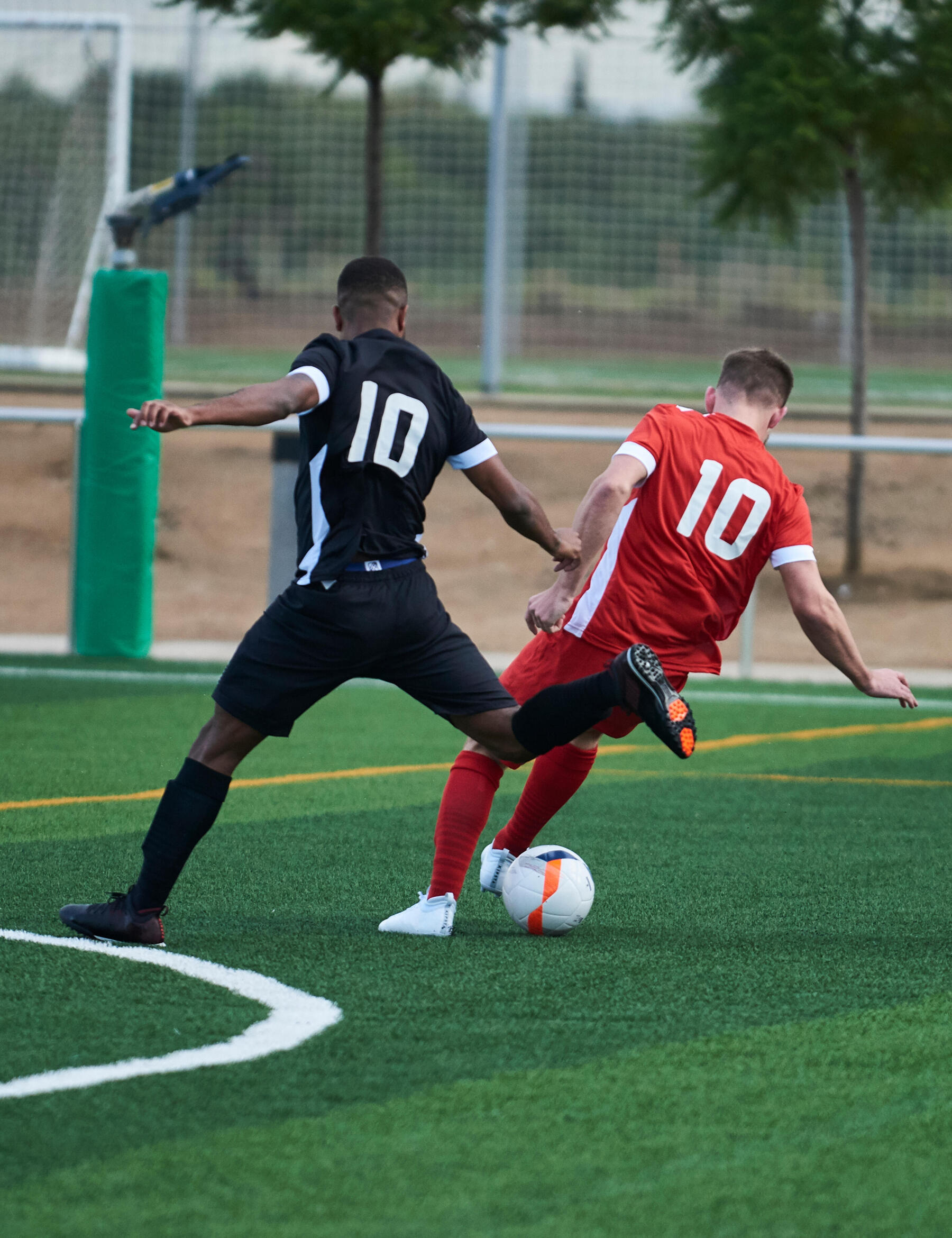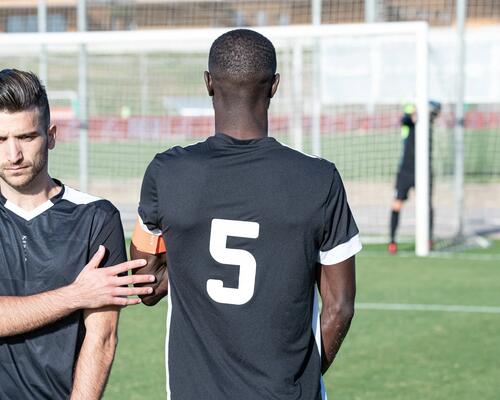Be smarter than the opposing forward
Defenders and forwards play cat and mouse during matches. They engage in fierce duels that can decide the outcome of the match. To gain an advantage over their opponent, a defender needs to be cunning. Risky, yet devastatingly effective when executed well, the offside trap is a must in the defender's toolkit. To master it, you have to constantly keep an eye on your fellow defenders' positions. “Reading” the game is also important. A good defender can sense when the ball is about to be passed, anticipate it, then appear from out of nowhere to take their opposite number out of the picture. Even better is to have a leader in the defensive line who can orchestrate play and guide each person's movements. Take on this role only if you feel you've got broad shoulders!
The ability to anticipate can also help defenders to make goal-saving interceptions. To get yourself in the way of an opponent's pass, you need to position yourself carefully, refraining from sticking too close to your mark. This means leaving a little leeway and knowing when to put on that burst of speed to get there before your opponent. This will also stop them using their body how they'd like. That's because it's easier for a striker to act as pivot when their marker is standing right behind them. All they need to do is use their arm and turn at a slight angle to block you. This is much harder to do when you're coming at them full tilt.





